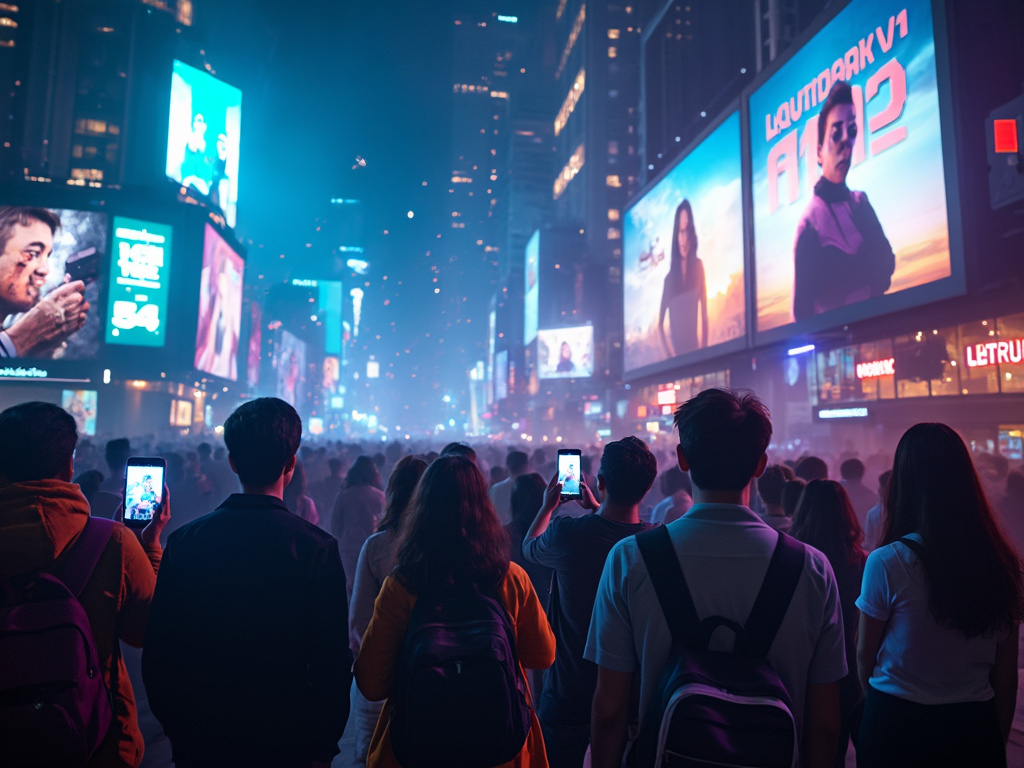The evolution of movie marketing
In the past, film marketing relied heavily on traditional media such as television, radio, and print advertisements. Movie studios would invest significant budgets into billboards, magazine spreads, and trailers shown in cinemas. However, the rise of movie trailers has transformed how films are promoted, allowing studios to create buzz and anticipation long before a film’s release. The evolution of marketing strategies has been driven by the need to reach audiences where they spend most of their time—online.
With the advent of social media, the landscape of film marketing has shifted dramatically. Platforms like Facebook, Twitter, Instagram, and TikTok have become essential tools for studios to engage with potential viewers. These platforms allow for targeted promotions, enabling studios to tailor their messages to specific demographics. As a result, the marketing of films has become more interactive, fostering a two-way conversation between filmmakers and audiences, which enhances overall audience engagement.
How social media shapes audience perceptions
Social media plays a pivotal role in shaping how audiences perceive films even before they hit the theatres. The immediacy of social media allows for real-time feedback and discussions, which can significantly influence public opinion. A well-crafted trailer shared on platforms like Instagram can go viral, creating a buzz that traditional marketing methods struggle to achieve. This phenomenon can lead to heightened expectations and anticipation, which can either benefit or hinder a film’s success upon release.
Moreover, the visual nature of social media platforms allows studios to showcase stunning visuals and behind-the-scenes content, further enticing audiences. Engaging content, such as interviews with cast members or sneak peeks of pivotal scenes, can create a sense of intimacy and connection with the film. This connection is crucial in a crowded market where numerous films vie for attention. By leveraging social media effectively, studios can cultivate a loyal fanbase that feels personally invested in the film’s success.
The role of social influencers in promotions
In the modern landscape of film marketing, social influencers have emerged as key players in promoting movies. These individuals, who have amassed large followings on platforms like YouTube, Instagram, and TikTok, can sway audience opinions and drive ticket sales. By collaborating with influencers, studios can tap into their established audiences, creating authentic buzz around upcoming releases. Influencers often provide a unique perspective, offering reviews and insights that resonate with their followers.
Furthermore, influencers can create engaging content that showcases the film in a relatable manner. For instance, a popular YouTuber might create a reaction video to a trailer, generating excitement and discussion among their viewers. This type of promotion not only broadens the film’s reach but also enhances its credibility, as audiences often trust recommendations from influencers they admire. As the film industry continues to evolve, the collaboration between studios and social influencers will likely become even more integral to successful promotions.
Measuring the success of trailers on social platforms
As social media becomes a cornerstone of film marketing, measuring the success of trailers on these platforms is essential. Metrics such as views, shares, likes, and comments provide valuable insights into audience engagement and interest. For instance, a trailer that garners millions of views within days of its release is likely to generate significant buzz and anticipation for the film. Studios can analyse these metrics to refine their marketing strategies and better understand what resonates with audiences.
Additionally, social listening tools can help studios gauge audience sentiment and feedback. By monitoring conversations around a film’s trailer, studios can identify potential concerns or excitement points, allowing them to adjust their promotional strategies accordingly. This data-driven approach to film marketing not only enhances the effectiveness of film marketing but also fosters a deeper connection with audiences, ensuring that their voices are heard and valued.
Future trends in movie marketing
As technology continues to advance, the future of movie marketing is poised for exciting developments. One emerging trend is the use of augmented reality (AR) and virtual reality (VR) to create immersive promotional experiences. Imagine being able to step into a film’s universe through your smartphone or VR headset, engaging with characters and settings in a way that traditional marketing cannot replicate. This level of interactivity could revolutionise how audiences connect with films, making them feel like active participants in the storytelling process.
Moreover, the integration of artificial intelligence (AI) in marketing strategies is likely to become more prevalent. AI can analyse vast amounts of data to predict audience preferences and tailor marketing campaigns accordingly. This personalised approach can enhance audience engagement and ensure that promotional efforts resonate with viewers on a deeper level. As we look to the future, it is clear that the intersection of technology and creativity will continue to shape the landscape of film marketing, making it an exciting time for both studios and audiences alike.
Related Articles
- Navigating algorithm changes: YouTube strategy for creators
- Silver Screen Adaptations: Books That Became Hollywood Blockbusters
- The future of virtual reality in cinematic storytelling
- The Evolution of Cinematic Storytelling: How Movies Have Changed Over the Decades
- Behind the scenes: Moviehustlers’ insider movie recommendations

